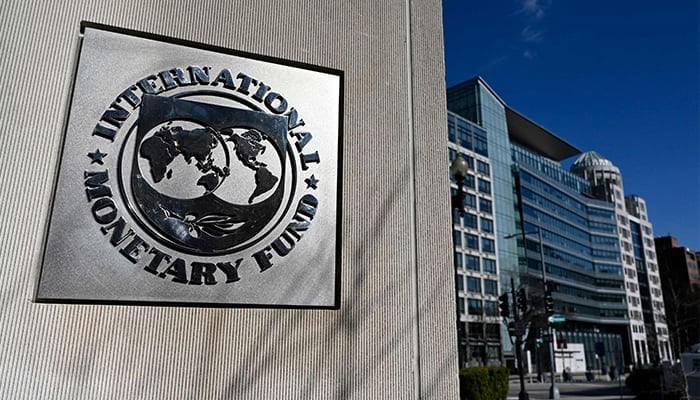By Mehtab Haider & News Desk
Published in The News on June 15, 2023
ISLAMABAD: Expressing dissatisfaction with Pakistan’s Budget for FY2023-24, the International Monetary Fund (IMF) said Wednesday the government has missed an opportunity to broaden the tax base and reduce tax expenditures as well as terms of tax amnesty against the Fund’s program conditionality.
Seeking major changes in the budget, the IMF stated it stands ready to refine this budget ahead of its passage from the Parliament.
When this correspondent sent a question to the IMF’s Resident Chief in Pakistan Esther Perez Ruiz about Fund’s opinion on the budget, she stated the staff remains engaged (with the government) to discuss policies to maintain stability.
She, however, said the draft FY24 Budget has missed an opportunity to broaden the tax base in a more progressive way, and the long list of new tax expenditures further reduces the fairness of the tax system and undercuts the resources needed for greater support for vulnerable BISP recipients and development spending.
“The new tax amnesty runs against program’s conditionality and governance agenda and creates a damaging precedent” she maintained, adding that measures to address the energy sector’s liquidity pressures could be included alongside the broader budget strategy.
The IMF team stands ready to work with the government in refining this budget ahead of its passage, she concluded.
Meanwhile, Pakistan has requested China to refinance commercial loans of $1.3 billion within the ongoing month but despite that, without the revival of the IMF programme, the foreign exchange reserves held by the State Bank of Pakistan might drop to below $3 billion.
Top official sources told The News on Wednesday night that Pakistan and IMF high-ups were making last-ditch efforts for reviving the stalled Fund-sponsored programme under the $6.5 billion Extended Fund Facility (EFF) and the next 48 hours were crucial for achieving a breakthrough.
The IMF has expressed apprehensions about the budgetary framework on resource mobilization, power sector and expenditure fronts.
In case the IMF programme does not revive till June 30, the foreign exchange reserves would drop below $3 billion on June 30, 2023. The foreign exchange reserves held by the State Bank of Pakistan (SBP) stood at $3.9 billion. Out of these, the government has now paid back $1.3 billion to Chinese commercial banks.
It is expected that the Chinese banks might re-finance commercial loans before June 30, 2023. Now another China SAFE deposit of $1 billion will be rolled over within the ongoing financial year.
The problem arises with the repayment of $900 million to multilateral creditors by the end of June 2023 in the shape of principal and mark-up repayments. With rollover and refinancing of $2.3 billion from China, Pakistan’s foreign exchange reserves would still go down to below $3 billion mark.
One top official stated: “There is a need to ascertain repayment requirements ranging around $4 to $6 billion from July to November period in 2023 when there will be a political transition happening in the country. How the bridge financing of $4 to $6 billion will be managed after the installation of caretaker setup around August 12, 2023, when the existing PDM-led government and National Assembly will complete their stipulated timeframe and tenure.”
So far, the IMF has raised serious objections over the budgetary framework for 2023-24 and asked the government to jack up FBR’s tax collection target close to Rs9.8 trillion instead of seeking a target of Rs9.2 trillion. The IMF also considered the non-tax revenue target of Rs2.9 trillion as unrealistic. Pakistan will have to bring major changes in the budgetary framework if it wants to strike a broader agreement on budgetary numbers for the next financial year.
Meanwhile, Minister of State for Finance Dr Aisha Ghaus Pasha told reporters at the Parliament House that the IMF did raise questions on budgetary framework, including resource mobilization, power sector and expenditure fronts.
Talking to reporters after the Senate Standing Committee on Finance meeting, Dr Aisha Pasha said that in the virtual meeting, Minister for Finance Ishaq Dar and the IMF Mission Chief Nathan Porter discussed the budget for the next fiscal year and the Fund concerns were related to resources mobilization, power sector and spending and they sought clarification on various other issues.
About the petroleum levy (PL), she explained that an increase was proposed in the Finance Bill with the purpose that in case of oil prices in international market rise, a necessary adjustment can be made through PL.
At this point in time, she said the government was not considering any increase in the PL. The minister said the IMF has asked questions on many things and sought clarification on a number of issues that would be explained to the fund during the technical-level discussion.
Pasha said the government wants to revive the economy by maintaining stability and does not want to take any measures that would affect stabilization. The minister said that the last fiscal year was very tough because of indigenous and exogenous shocks and all of these factors have negatively affected the growth. “We will discuss the issue of growth with the Fund and would try to convince the IMF.”
When asked that Pakistan’s review is not on the agenda of the IMF Executive Board meeting scheduled for June 22, 2023, the minister stated that the IMF Executive Board meetings were held thrice a week and there was nothing to worry about.
When contacted, Dr Khaqan Najeeb, former adviser to the Ministry of Finance, said Pakistan’s dollar liquidity crunch doesn’t seem to be going away. He said Pakistan’s payments till the end of June are $3.2 billion. If Chinese rollovers of $1bn and refinancing of $1.3 bn are fully achieved, another $900 million would still be needed to pay to multilateral and bilateral partners. “This would mean reserves at $3bn could be pressured down to an uncomfortable level with an estimated current account deficit of nearly $400 million in June,” Dr Khaqan feared.
He felt the first task in this regard was to immediately ensure Chinese commercial refinancing. “We also have to pay $3.2bn before July and in the next financial year, we have to repay $23 billion in debt servicing, which also includes a rollover of $10 billion. All this is not an easy task in the next financial year,” Dr Khaqan concluded.
In a related development, Moody’s Investors Services has warned that Pakistan is at an increased risk of failing to restart its $6.7 billion bailout programme with the IMF, putting the country closer to a sovereign default. “There are increasing risks that Pakistan may be unable to complete the IMF programme that expires at the end of June,” a sovereign analyst with the rating company in Singapore Grace Lim said. Lim said: “Without an IMF programme, Pakistan could default, given its very weak reserves.”




